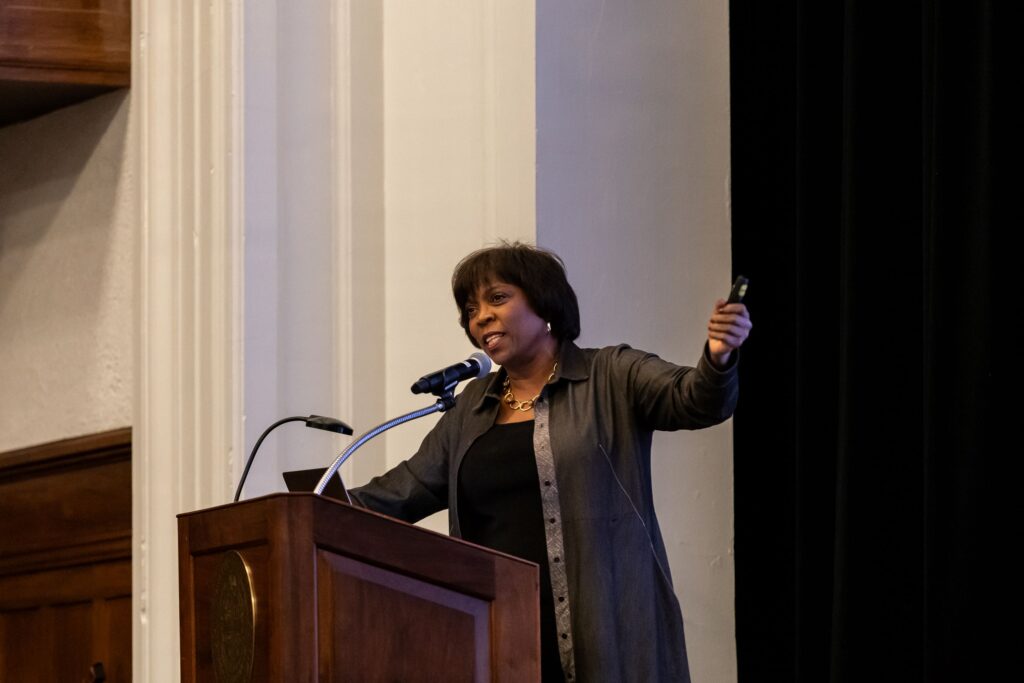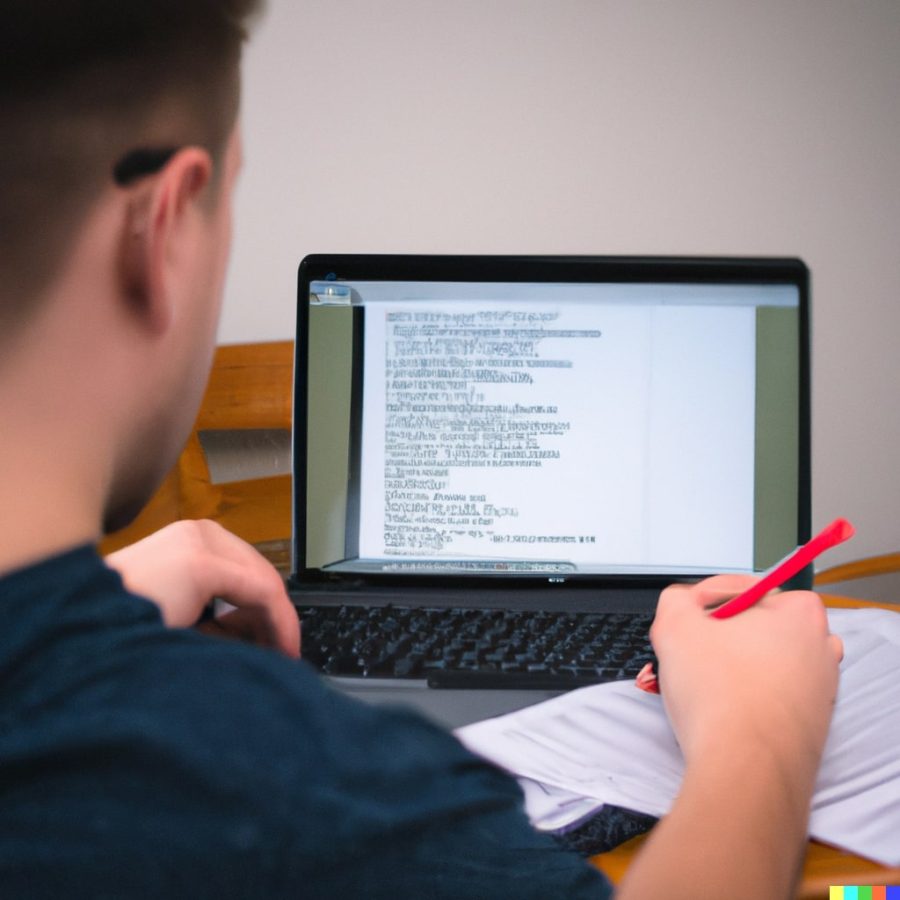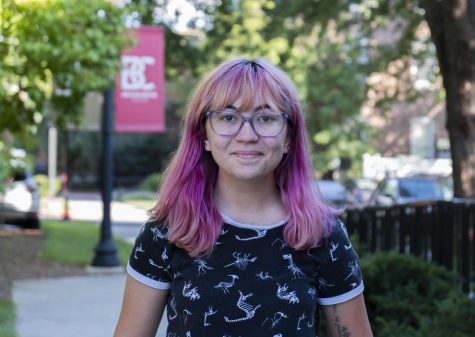ChatGPT: Helpful or Harmful in Education?
This image is what DALL⋅E 2, an A.I. image generator by OpenAI, generated when asked to show “a college student using ChatGPT.” OpenAI is the company that has created ChatGPT and other A.I. tools.
February 14, 2023
Bridgewater, Va.- When asked, “What is ChatGPT?” ChatGPT describes itself as “an A.I.-based language model developed by OpenAI, a leading research organization in the field of artificial intelligence. It is a state-of-the-art language model that is capable of generating human-like text based on the input it receives.”
ChatGPT has been capturing people’s attention because although it is not the first A.I. chatbot, people have been impressed and surprised by its ability to perform in a way that mimics the way people write.
OpenAI released ChatGPT to the public at the end of November 2022. When the website is not being overwhelmed by users, it is free for anyone to use as long as they make an account with OpenAI, which also has other tools such as an A.I. image generator.
ChatGPT’s release and ability to mimic human writing has begun to raise concerns about how students, particularly in high schools and colleges, could use the website to plagiarize papers. While this is a concern among some faculty and staff at Bridgewater College, much of the conversation around ChatGPT on campus has shifted to trying to understand how it can benefit students.
“The initial conversation that I was in was more about the fear of Chat GPT, about how it could impact plagiarism, but I would like to turn that conversation into a more positive [one],” said Director of Instructional Design Emily Goodwin, who works with faculty on both developing and implementing curriculums while also keeping track of trends in higher education. “If students are going to use it, let’s see how we can incorporate it into the classroom as part of their projects.”
While ChatGPT is able to mimic the way humans write, it is not able to replicate it completely. There are already tools that are able to decide if a piece was written by ChatGPT or another A.I., including an app made by a student at Princeton and a tool that TurnItIn is currently testing out.
“There are a lot of people who are bad writers who think that what ChatGPT produces is good writing,” said Assistant Professor of English Sam Hamilton. “What it produces is what people who are bad writers assume good writing looks like because it’s free of error.”
Hamilton teaches a variety of professional writing and English classes, including ENG-110. He explained that he does not have any concerns about students using ChatGPT to cheat because he finds it easy to tell when A.I. has been used. Instead, Hamilton is concerned about the impacts it may have on the field of professional writing as a whole.
“I have concerns since a lot of the fields somebody can get a job in, like technical writing or a field like that, are intended to be personality-less writing, and I worry that industries will say, ‘Why would we spend $70,000 salary plus benefits to employ somebody to be our technical writer? We’ll just get this robot to do it,’’” said Hamilton. “I think they’ll very quickly realize that they can’t, but I think that a savvy technical writer should be using something like ChatGPT when they’re doing the job because it adds efficiencies to their job.”
Hamilton is also more focused on the ways in which students and professional writers can use ChatGPT to their advantage and believes that professional writing students should learn how to use it effectively.
“I think ChatGPT can be a very useful tool for students,” said senior and Lead Tech Guru Anton Kopti. “Personally, I don’t use it to cheat or do my assignments because it’s simply incapable of doing those things. If it does do that, it’s just bad quality. I use it for when I have writer’s block or a coding problem I can’t figure out. It’s a source of ideas, not a source of plagiarism.”
While many people at the college are not concerned about ChatGPT being used as a tool for plagiarism and see it as a learning tool, many others believe it could have a harmful effect on education.
“[My] personal opinion is that it is yet another way to promote laziness, to promote unoriginal thoughts,” said Associate Professor of Biology Edgar Lickey, who is also a faculty advisor for the honor council. “I think that the originators… probably thought about the consequences of this, but I think it’ll promote a lot of laziness, especially in… high school and college students.”
Lickey only has mild concerns in regard to his students as he is unsure about how much information ChatGPT can generate in regard to the topics of his courses.
“I’m still trying to get my head around how students will be able to use it for my classes,” said Lickey. “I would hope I would rely on their sense of ownership of their work, that they would be honorable and follow the honor code enough to realize that the work that they turn in should be their own.”
In regard to how the honor council is planning to handle ChatGPT, Lickey also explained that they are still working on how to address the issue.
“I think people should try it out,” said Goodwin. “I think faculty should try it out. I think students should try it out. I think that they should try it out in a way that is for entertainment purposes. I think we should really look at how we can incorporate it into our projects, and, again, use this as a positive thing not as a negative thing.”
























































